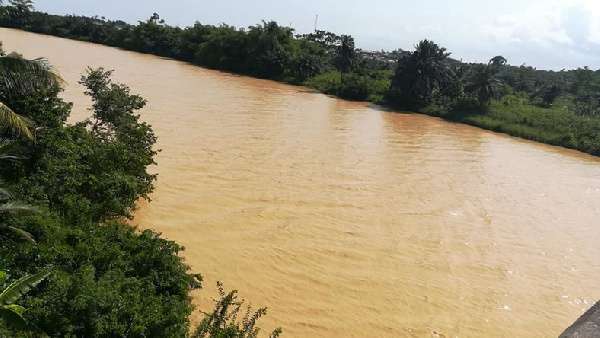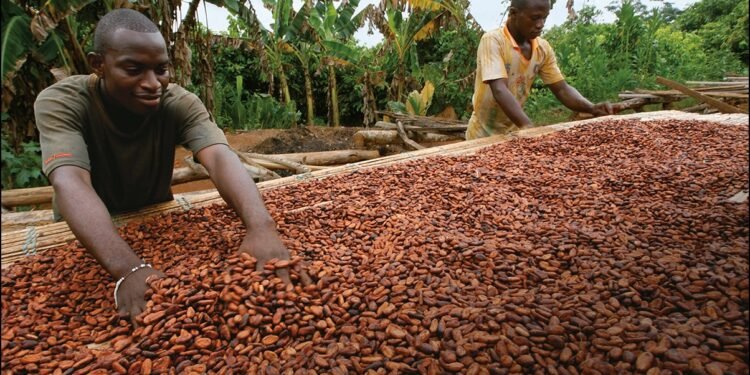Ghana has faced increasing challenges in managing its water resources, especially the issue of poisoned rivers as a result of illegal mining popularly known as ‘Galamsey’.
The situation has become so dire that, experts have warned that the country may have to resort to large-scale importation of water shortly. An environmental scientist, and founding Director of Environment and Sanitation Studies University of Ghana, Professor Chris Gordon has provided an in-depth perspective on the issues at hand, describing the current state of affairs as alarming.
Prof. Gordon revealed that, water importation in Ghana will not just be 20 to 30 years, he asserted; “I would say it is likely to be earlier.” This chilling forecast reflects the gravity of the situation, where the availability of safe and reliable water sources is rapidly dwindling.
According to Prof. Gordon, the situation isn’t just about the future. Water importation is already happening in Ghana, albeit on a smaller scale.
“We’re already importing water. There’s imported water on the shelves in Ghanaian supermarkets already.”
Professor Chris Gordon founding Director of Environment and Sanitation Studies University of Ghana
This reality stems from a lack of trust in locally produced water among certain segments of the population, particularly those who can afford imported alternatives.
“… So, they would rather drink Evian or something that is coming from France or somewhere else.”
Professor Chris Gordon founding Director of Environment and Sanitation Studies University of Ghana
This highlights a stark disparity in water access and safety within the country. For decades, the Ghana Water Company has been warning about impending water supply challenges as a result of the galamsey mining activities, and environmental scientists like Prof. Gordon have echoed these concerns. However, little has been done to address the underlying issues.
“This is nothing new. We as environmental scientists have been warning about the degradation of our inland waters not just for drinking but for the habitat of all the organisms, the plants, the animals, the fish we use as food.’’
Professor Chris Gordon founding Director of Environment and Sanitation Studies University of Ghana
Prof. Gordon emphasized that, this degradation not only affects drinking water but also threatens the habitats of various organisms, including plants, fish, and animals, which are vital for local food security.
“The problem has been that, the scale of the pollution has moved from small to large scale, the position has moved from localized to extensive.”
Professor Chris Gordon founding Director of Environment and Sanitation Studies University of Ghana
The pollution in Ghana’s water bodies is not just superficial; it includes a mix of heavy metals, hormones, petrochemicals, and more. This widespread pollution affects entire catchments, with upstream activities impacting downstream water quality.
“What we have in our water is not just the Sediments which make the water look like coffee or milo, but we have heavy metals, we have hormones, we have petrochemicals.”
Professor Chris Gordon founding Director of Environment and Sanitation Studies University of Ghana
According to Prof. Gordon, these pollutants have dire consequences for both the environment and public health. As water moves through the ecosystem, these contaminants also infiltrate the soil and groundwater, compounding the environmental damage. He pointed out that, one of the major concerns is the diversion of watercourses, which exacerbates the pollution problem. These toxic substances pose severe risks to human health, wildlife, and agriculture, making it an urgent issue that needs immediate attention.
“The metals of concern—cyanide, arsenic, mercury, lead—are affecting everything and everybody.”
Professor Chris Gordon founding Director of Environment and Sanitation Studies University of Ghana
The impact of water pollution in Ghana extends beyond just water quality. The country’s ecosystems, particularly biodiversity hotspots, have been severely compromised. These areas, which house endemic species, are being degraded at an alarming rate. This loss of biodiversity not only affects the natural environment but also threatens the livelihoods of communities that depend on these ecosystems for food and income.
An Uncertain Future
The scale and magnitude of Ghana’s water crisis make the prospect of finding a solution within a single generation seem bleak. Prof. Gordon offered a sobering perspective.
“The magnitude of the problem is immense. I do not see a solution in my lifetime.”
Professor Chris Gordon founding Director of Environment and Sanitation Studies University of Ghana
This statement underscored the urgency of the situation and the need for long-term strategies to address the root causes of water pollution and degradation in the country. This shows that, urgent measures have to be taken otherwise Ghana would lose its water resources to Galamsey. Moreover, Prof. Gordon pointed out that, the situation is not just a matter of aesthetics or inconvenience; it is a systemic issue with far-reaching consequences for public health, agriculture, and the overall quality of life in Ghana. “Once water is contaminated, it also impacts the soil, it goes into the groundwater,” he said, stressing the interconnected nature of environmental degradation. He pointed out that, the situation is such that our entire water supply network and all our ecosystems have been compromised.
Prof. Gordon painted a grim picture of Ghana’s water crisis, highlighting the urgency of the situation and the need for immediate action. The environmental degradation of the country’s water resources is not just a future threat—it is a present reality that affects every aspect of life in Ghana.
The importation of water, the contamination of ecosystems, and the loss of biodiversity are all symptoms of a larger problem that requires a coordinated and sustained effort to address. Prof. Gordon reiterated the magnitude of the challenge, urging stakeholders to act swiftly before it’s too late. The future of Ghana’s water supply depends on it.
READ ALSO; Peter of P-Square Visits Twin Bother’s Children Amid Their Fight























